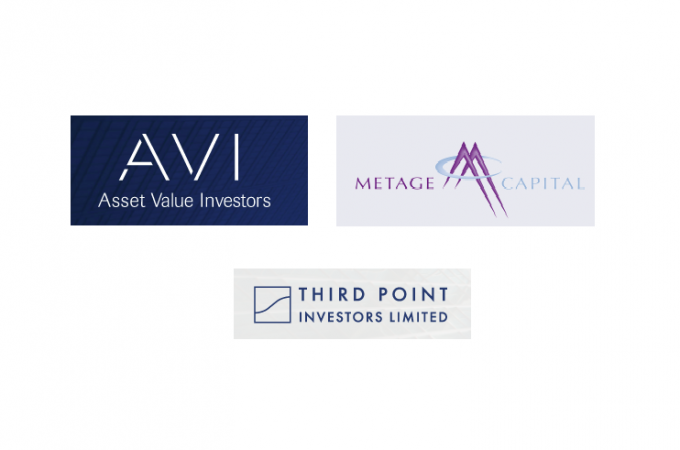Metage Capital opens new front against Third Point Investors – following on from Asset Value Investors’ attempts, on behalf of clients such as AVI Global, to get Third Point Investors to tackle its discount, Metage Capital has today written to the board of Third Point Investors. We reproduce the letter in full.
Dear Fellow Shareholders,
Metage Capital seeks support from shareholders of Third Point Investors Ltd
Metage Capital acts as investment manager to Metage Funds Limited, one of the four shareholders in TPIL who jointly requisitioned the Company in both July and August, seeking to allow its shareholders an opportunity to vote on its future. Whilst we await a response from the Board to the 30th September letter from the lead requisitionist AVI, we wanted to put some thoughts to our fellow shareholders. If you share our views on the importance of good corporate governance, we urge you to reach out to the Board in support of being allowed to vote on these requisitions.
The Board rejected the July requisition on the grounds that it was ineffective because it infringed on their powers. As we understand it, the August requisition was deemed ineffective because it failed to bind the Board to any particular course of action. One cannot help but wonder what type of requisition the Board would need to see before they felt obliged to put it to the vote. It is also worth noting that in respect of both requisitions the Board was perfectly entitled to put the resolutions to shareholders, but in each case simply chose not to.
This blatant disregard for the rights of shareholders stands in stark contrast to the views frequently expressed by Dan Loeb when an investor himself. Mr Loeb is quite happy turning up on a company’s register as a new investor and promptly starting to tell them how to run their affairs. The Boards of The Walt Disney Co, Prudential PLC, Sony Group, Nestlé and Intel Corp have all benefitted from his unsolicited advice in recent years. The fact that he holds himself out to be a specialist in dealing with companies whose stock trades at a discount to fair value is an irony that cannot be lost on many of them. Unfortunately, he is rather less willing to listen to this advice himself. Those lucky enough to have been present at the Company’s Q4 Investor Update webinar on the 2nd February this year will have seen Dan when the mask slipped. In response to a question about his own discount he lambasted “short-term profiteers” looking to “game the system for quick bucks”, even boasting at one stage that TPIL’s “dual share classes and voting protection” made it immune to attack. Disappointingly, investors who only heard the call through the officially released recording will have missed this, as the tape seems to have run out just before this extraordinary rant.
To be absolutely clear, we are not opposed in any way to the manager’s style of activist investing; in fact we are very supportive of it. So why should the board of Sony (to pick one example) follow the advice of a small shareholder such as TPIL? Because sometimes the right course of action is so self-evident that only by being too close to the problem can one fail to see it. Because whilst Third Point may not know as much as Sony does about the manufacture of electronic products, they do know how to work a balance sheet effectively.
Perhaps the most powerful argument why the Company should put in place a mechanism such as that suggested by the two requisitions, has been made by the Board itself. In their 13th July response to the first requisition, they state that the proposed actions were rejected by the Board for various reasons, including principally that they would “meaningfully reduce the trading float and overall size of the Company…and threaten its long-term viability”. To paraphrase: “We shouldn’t do this, because it’s what too many of our investors want”! This manager and Board appear to have forgotten that they work for us, the investors.
In conclusion, we would like to say the following. To the members of the Board, you are not the puppets of the manager; it is unlikely that the right course of action for shareholders is going to make the manager happy. And to Mr Loeb, toughen up and take some of your own medicine, it’s not actually that bad. Who knows? You may even feel better, knowing that you have done the right thing for your investors.
Richard Webb,
CEO
